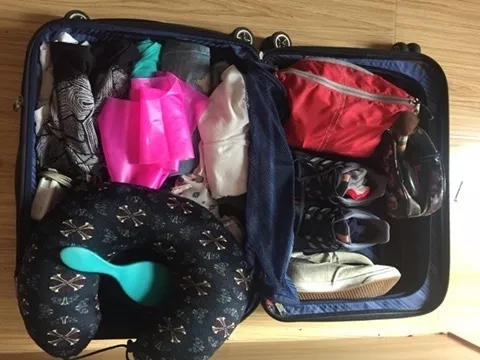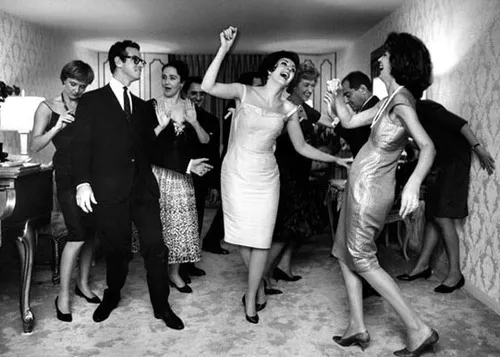看了这么多美剧,这些表达你真的会用吗?
作者:xin 2020-03-12
你会通过看美剧来学习英语吗?在看的过程中,有没有真正掌握那些地道的用法呢?没有?没关系,在本次英文电台内容中,你将得到的是由Melissa带来的,美剧的地道表达及文化,现在我们来一探究竟,赶紧来看看吧!
Welcome back, everyone! I’m looking forward to starting up another semester full of podcasts! First we will be focusing on useful English from episode 3 of Desperate Housewives.
欢迎回来,大家好! 我一直在期待着开始这个学期的播客内容!我们将先专注于绝望主妇第3集的实用英语表达。
I’ve certainly missed being a part of your lives on this podcast each week so I am very happy to be back! Earlier this summer, IVE asked you what you wanted to hear in your podcasts and we know that you want to learn more useful English! I think it’s fantastic that you are all so passionate about learning common phrases used in the English language and I am super excited to share them with you!
So, cheers to you! (This is me enjoying my daily morning cup of coffee) Let’s get started!
我一直都在想念每周都参加这个播客的生活,所以我很高兴能回来! 今年夏天早些时候,IVE问你在播客中想听到什么,反馈的结果是你们想要学习更多有用的英语! 看到你们很有兴趣学习英语中使用的常用短语,我感到非常高兴,我也非常兴奋能与你们分享!
那我们用我每早都要喝的咖啡干杯,现在开始!地道表达来啦!
Phrase 1 : Travel Light
Shortly into the episode we hear the narrator say that “it helps to travel light”. You may have heard to either travel or pack light. This is a common phrase used in the West for when we are traveling or going on a trip. What we mean to say is that it is important to only take what you need. This seems simple enough, but as I recently learned upon returning to America, traveling light is not always easy.
在这一集中,我们听到叙述者说“它有助于轻装上阵”。 您可能听说过在旅行或打包时轻装上阵。 这是西方在旅行或旅行时使用的常用词语。 我们的意思是说,只带上你真正需要的东西。 这看起来很简单,但正如我最近回到美国时学到的那样,轻装上阵并不总是那么容易。

This is a picture from a quick trip to Hong Kong where I travelled light and did a good job of only bringing what I thought I would need— make up, toiletries, one or two outfits for going out and some things for exercising (because even on vacation it’s still important to exercise!, and of course, my travel pillow.)
Phrase 2 : What I remember most…
We also hear the narrator mention what she remembers most about another character on the show. The phrase, “What I remember most” is an excellent phrase for you to get familiar with because not only is a good set up for a story, but it is a great formula for other sentences. For instance, you could say, “What I like most”, “What I miss most”, “What I hate most”…

我们还听到叙述者提到了她对节目中另一个角色的记忆最多的是什么。 短语“我记得最多”是一个很好的,供你熟悉的短语,因为它不仅很好的设置了故事,而且是其他句子的一个很好的公式。 例如,你可以说,“我最喜欢的东西”,“我最想念的东西”,“我最讨厌的东西”......
Example: It’s funny, what I remember most about my third grade teacher is that ugly, striped shirt he always wore.
例子:很有趣,我记得关于我三年级老师最多的是他总是穿着的丑陋条纹衬衫。
Phrase 3 : Caught her eye
You may have noticed the phrase, “and something caught her eye”. For those of you who haven’t heard this before, no, we don’t mean to say that someone literally grabbed a hold of someone’s eyeball. This is something we say when we are trying to convey that something is appealing to us and got our attention. It could be a person, an item, or even something that someone says, however, you would not say that “something caught your ear”. You could say something caught your attention.
你可能已经注意到这句话,“有些东西引起了她的注意”。 对于那些以前没有听过这个的人,我们并不是说有人真的抓住了某个人的眼球。 当我们试图传达某些东西对我们有吸引力并引起我们的注意时,我们会说这个短语。 它可能是一个人,一个项目,甚至是某人所说的某些东西,但是,你不会说“有些东西抓住了你的耳朵”。 你可以说“ 引起了你注意”。
Example: He must think she’s attractive because she definitely caught his eye.
例子:她对于他一定是很有吸引力的,因为她确实引起了他的注意。
Example: I heard Brian say something that caught my attention. He’s getting married!
例子:我听到Brian说了些引起我注意的事情。 他要结婚了!
Phrase 4 : Works for me
Often times in America, when we are trying to make plans with someone or trying to finalize something, we will ask, “Does that work for you?” “Does this time work for you?”
When making plans with something you can ask them if a certain time, day, or event works for them.
通常在美国,当我们试图与某人制定计划或试图敲定某些东西时,我们会问:“这对你有用吗?”“这次适合你吗?”
在制定计划时,您可以询问他们是否适合某些时间,日期或事件。

Phrase 5 : Shindig
A shindig is an event, usually a party, however, it is a bit of an old-fashioned term. Think America in the 1960’s, big hair and retro clothing. Typically these events involved good music, food, drinks, and maybe some dancing. You can use this word in replace of the word “party”, so, “I’m throwing a shindig”, “how was your shindig last night?”, “Did you hear what happened at Amy’s shindig last week?” Since this is a bit of an old-fashioned term it is usually said to be kind of funny.

Shindig是一个事件,通常是一个派对,然而,这是一个老式的术语。 思考一下在1960年代有着大头发和复古服装的美国。 通常这些活动涉及好听的音乐,食物,饮料,也许还有一些舞蹈。 你可以用这个词代替“派对”这个词,所以,“我正在办一个shindig”,“昨晚你的shindig是怎么回事?”,“你听说上周艾米的shindig发生了什么事吗?”因为这个表达有点古老,通常是以幽默有趣的情景下表达。
经典、非常适合语言学习的美剧,你喜欢吗?今天的地道表达都学会了吗?英语学习需要灵活运用,多多结合生活中的实际场景,用有趣的方式学习英语,会有事半功倍的学习效果。







